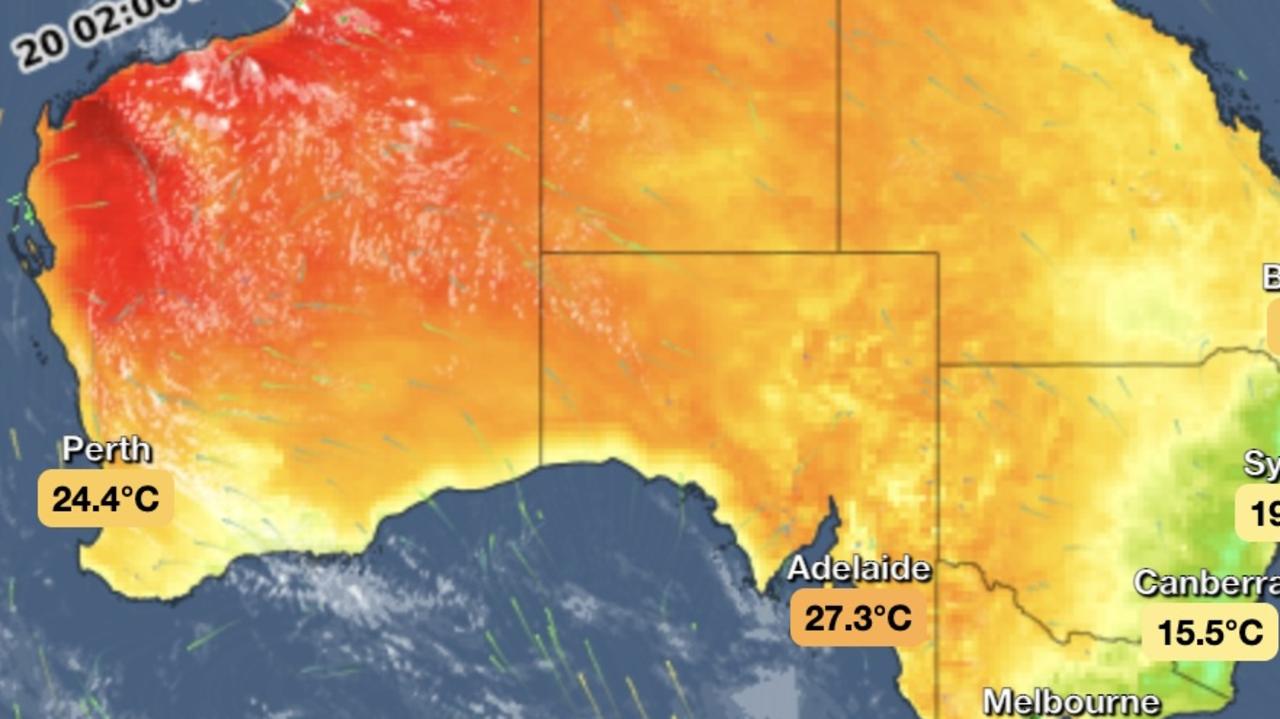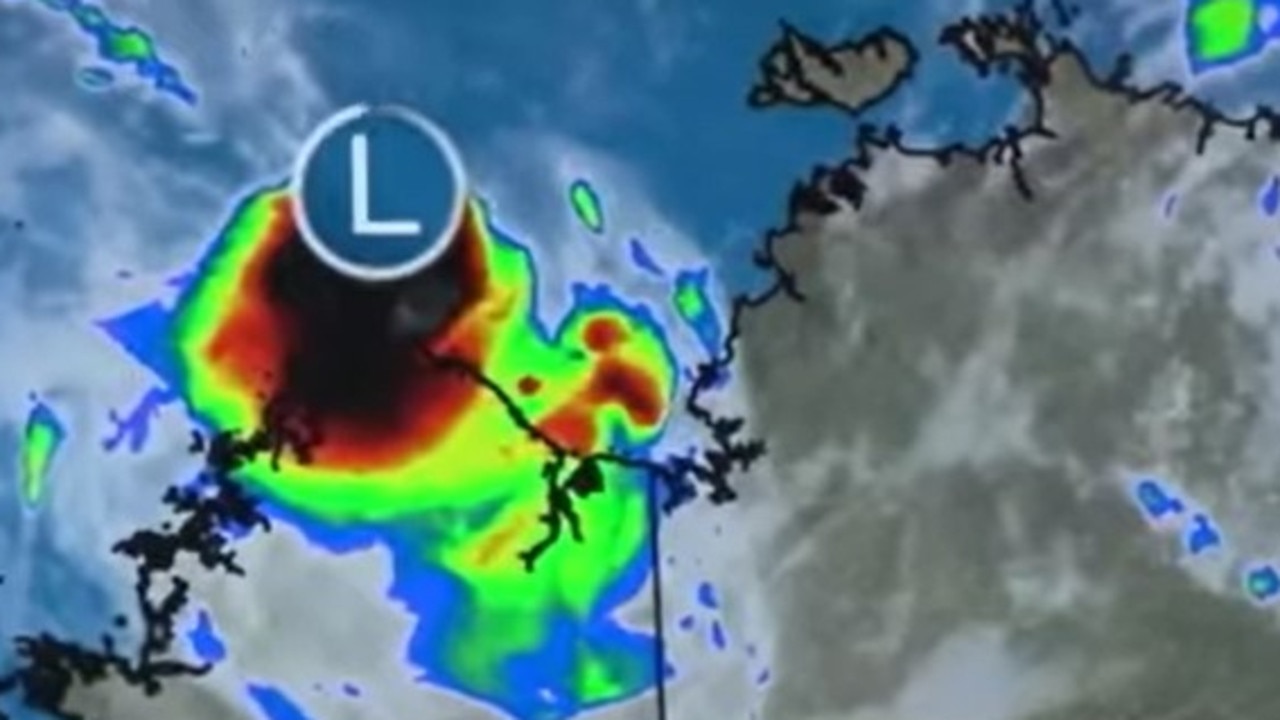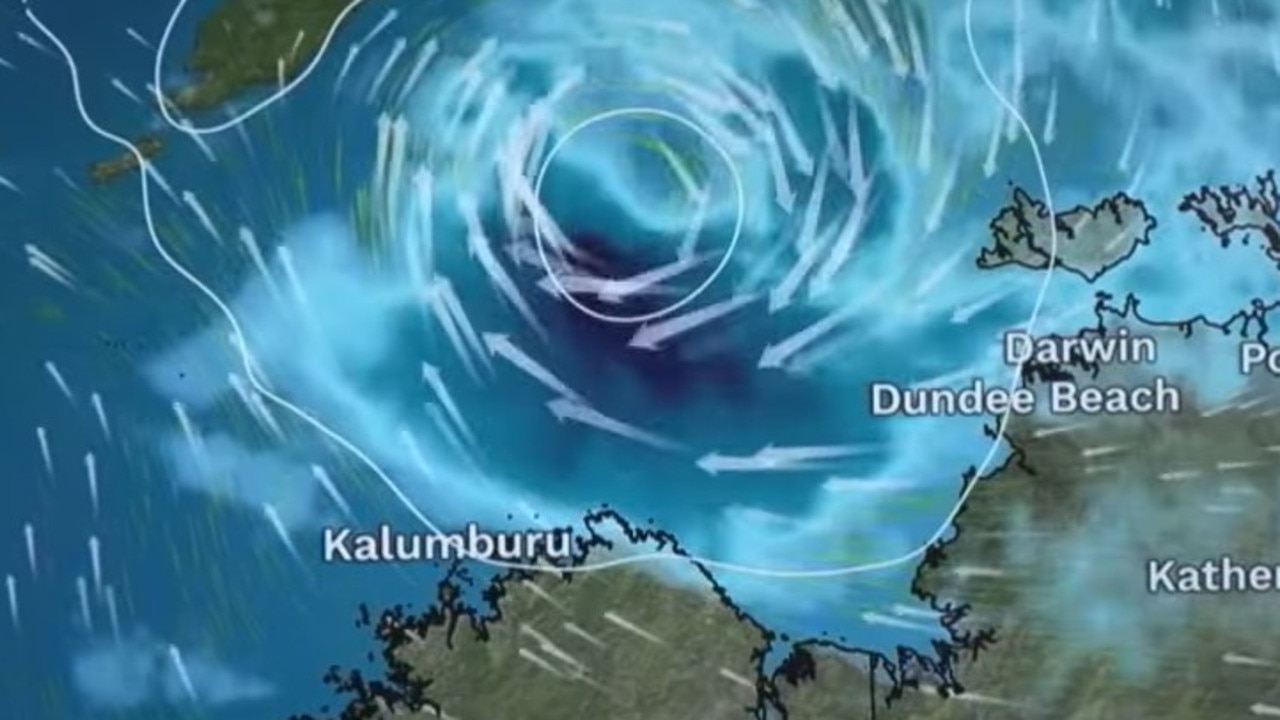Sydney, Brisbane, Melbourne, Adelaide brace for scorching Saturday
SEVERAL beaches in Qld and NSW have again been closed as some parts head towards 45C today. Relief is not in sight until Sunday.
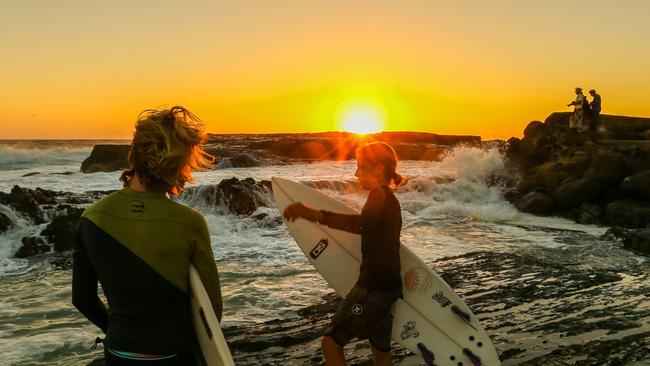
RESIDENTS of Australia’s East coast will suffer through scorching, “hell on earth” temperatures on Saturday as the full brunt of the lingering heatwave bites.
But for some parts of Australia, relief could be a little hard to come by, with several beaches in Queensland and New South Wales closed by lifeguards on Saturday morning due to dangerous surf.
Authorities are on high alert in the two states, and in parts of Victoria and South Autralia, amid looming “catastrophic” fire conditions.
Sydney is predicted to hit a sweltering top of 42C, after suffering through overnight temperatures that barely dropped below 26C.
It is now officially the hottest summer in Sydney’s 158 year recorded history, with 10 summer days over 35C, according to Bureau of Meteorology.
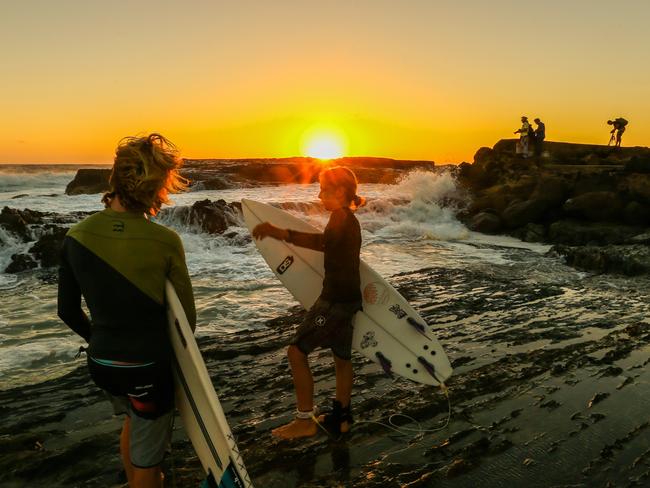
In Queensland, Brisbane residents also suffered through another hot night, with temperatures in the state capital dropping only as low as 26.6C at 5am.
The River City is tipped to reach a high of 37C today, as is the nearby Gold Coast, where Surf Life Saving Queensland has closed seven beaches for the second consecutive day, including some of the region’s most popular.
Surfers Paradise, Miami, Pacific, Nobbys, Palm, Bilinga and Tugun beaches have all been closed.
Strong winds and high swells have created surf conditions too dangerous for the hordes of people tipped to flock to the coast for relief on Saturday.
Sunshine Coast beaches are also being closely monitored, with surging waves expected to cause dangerous rips throughout the day.
In New South Wales, Tamarama in Sydney’s eastern suburbs has been closed due to dangerous surf, as has South Curl Curl on the northern beaches.
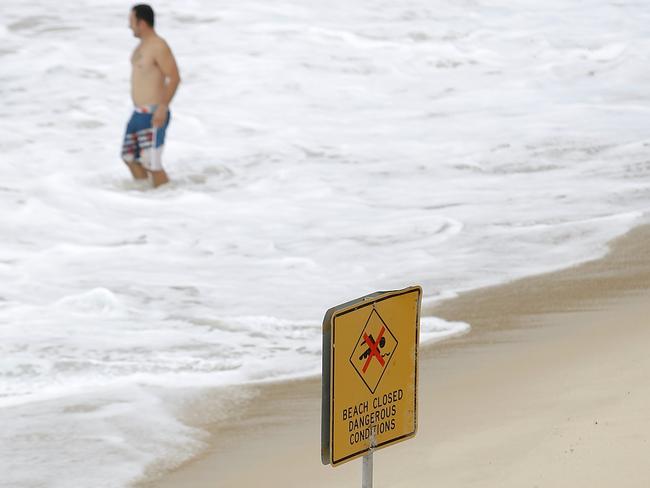
All other Sydney beaches are open for swimming.
Environmental authorities have also lifted a pollution warning on three eastern suburbs beaches — Coogee, Little Bay and Malabar — with all three declared safe for swimming on Saturday.
Potentially high levels of faecal matter in the water after heavy rainfall during the week caused wastewater run-off at the three beaches prompted authorities to warn people to avoid swimming there on Friday.
North of Sydney, Newcastle’s Mereweather beach also remains closed.
SLSQ Gold Coast duty officer Grahame Long said lifesavers could close further beaches as the weekend progressed.
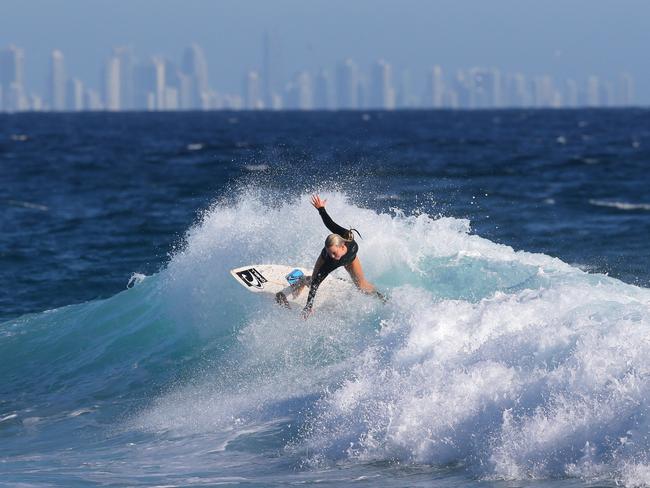
“The conditions are quite unstable at the moment across the Gold Coast with a very high incoming tide causing a surge in waves, and we strongly urge all beachgoers to only enter the water at patrolled locations between the red and yellow flags,” he said.
“Lifesavers and lifeguards will be closely monitoring the conditions across the day and again early tomorrow morning before a decision is made about whether it’s safe to open beaches to the public across the weekend.
“The decision to close a beach is one that’s made in the interests of public safety and, if that’s the case, it’s really important that everyone stays well clear of the water.”
Relief is still a long way off for residents of New South Wales, South Australia, Queensland and parts of Victoria.
The heatwave from hell is not expected to be ended by a cool change until at least Sunday.
Experts have warned to plan ahead to avoid heat-related illnesses including dehydration and heat stroke.
Here’s what the bureau is predicting for Saturday.
NEW SOUTH WALES
• ‘Catastrophic’ fire danger looms in NSW
NSW could experience its hottest February day on record this weekend with emergency services staying on high alert for catastrophic fire conditions. A statewide total fire ban has been declared for Saturday as the mercury soars past 40C.
“If you’re a little bit inland from the coast in Sydney or the Hunter district, you’ll experience probably mid-40s,” senior forecaster at the Bureau of Meteorology Andrew Haigh told AAP.
“That goes for anywhere west of the ranges as well”.
The state’s northwest will cop the brunt of the extreme heat with Wilcannia, Ivanhoe, Bourke and Menindee forecast to reach 47C on Saturday. In the Hunter Region, Singleton and Cessnock are predicted to reach 46C and 43C on Sunday.
The Rural Fire Service has warned of a potential “catastrophic” fire danger warning on Sunday largely around the Hunter, from the coast, mid-north coast, out through the Central Tablelands, the top end of the greater Sydney region and out to the central west.
The RFS has urged residents to have their bushfire survival plans ready. The sizzling conditions will also continue to push the state’s energy network to limit with demand for power among the highest on record.

NSW managed to dodge widespread power blackouts on Friday despite demand reaching unprecedented levels as temperatures reached 45C in western Sydney and 47.4C in the western Riverina town of Hay.
The stress on the system will persist over the weekend, the Australian Market Energy Operator says, and it’s warned residents to be mindful of their electricity use.
Sydney will get no relief over the weekend with the city forecast to reach 39C on Saturday, and the west to reach the mid-40s.
The state’s Forestry Corporation has closed all forests between Sydney and Kempsey in the state’s north, along with forests in The Pilliga region and the Talleganda State Forest on the Southern Tablelands.
Saturday’s Randwick races have been postponed to Monday due to concerns about the welfare of horses and riders.
Newcastle’s A-League soccer match against Melbourne Victory has also been postponed until Monday, while Football NSW has cancelled all Saturday trial games for under-18s and below and shifted under-20s and first grade trials to evening start times.
NSW’s three NRL trial matches will however go ahead on Saturday evening, as will the Sheffield Shield clash between NSW and Queensland. Cricket NSW has cancelled all grades of Premier Cricket, while most school and children’s sport has been cancelled.
With many people heading to waterways to cool off in the heat, parents are being urged to keep an eye on children following a tragic summer of drownings. Health experts are reminding people to stay hydrated, wear sunscreen and look out for people most at risk, while NSW clubs say they will provide water and respite for vulnerable people.
VICTORIA
• Heatwave continues in Victoria’s north
People in Victoria’s north have to suffer through one more day of 40C plus heat before a cool change brings relief.
Temperatures have been scorching for residents in Mildura, who contended with a sticky night before the mercury reached a top of 46C on Friday. Relief isn’t in sight yet, with the Bureau of Meteorology predicting the border town will reach a top of 43C on Saturday.
A cool change shifts the hot weather on by the evening.
The state’s northern towns and cities have been struck by a heatwave, with conditions mostly unchanged since Thursday.
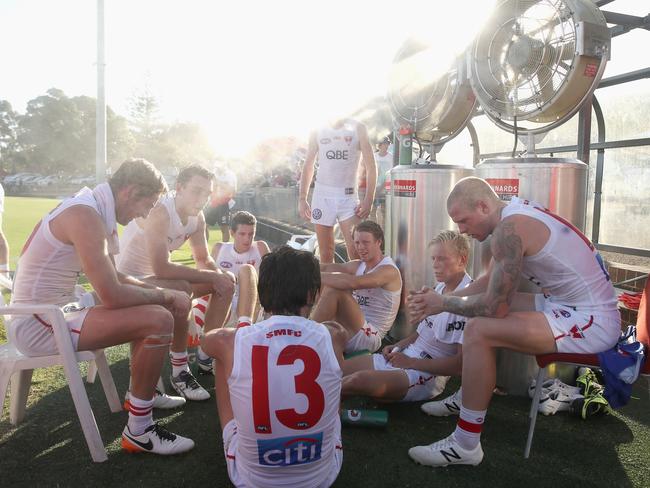
Albury Wodonga, Wangaratta and Echuca will see temperatures in the low 40s on Saturday before cooling down by Sunday.
State Health Commander Paul Holman has reminded Victorians to “remain vigilant” during the coming days, keeping an eye on elderly people and young children, who are less able to regulate their body temperatures in extreme weather.
QUEENSLAND
• Heatwave has paramedics on high alert
A heatwave sweeping southern Queensland, which will push temperatures past 40C, has paramedics on high alert.
Heat records could tumble over the weekend, with the state’s hottest February day a possibility of being broken.
The weather bureau is forecasting temperatures in the mid-40s in the state’s southwest and a top of 36C in Brisbane on Saturday.
The heat will crank up again on Sunday, with a maximum of 39C forecast for the capital.
The mercury is expected to reach 46C in Birdsville on Saturday and Sunday, nudging the town’s February heat record of 46.2C and the Queensland record of 46.5C.
The sweltering conditions are set to push temperatures 10C past the February average, with paramedics urging people to keep hydrated to avoid becoming ill. They’ve suggested swapping caffeinated drinks for water, eating small and regular meals and wearing light-coloured cotton clothing.
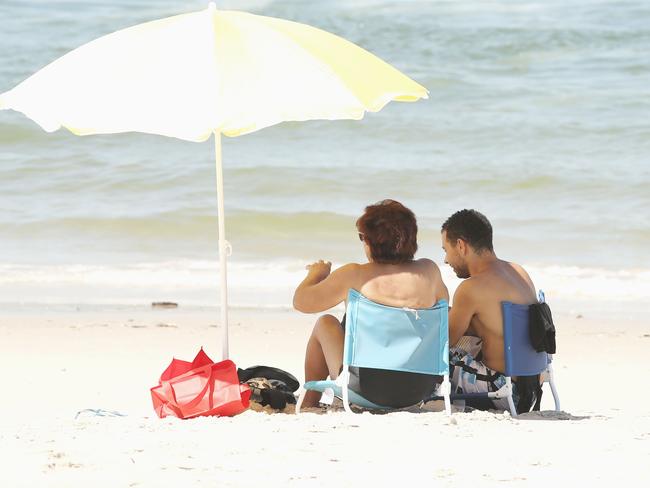
“Heat-related illnesses have the potential to be life-threatening and may include heat stroke,” Queensland Ambulance Service spokesman Lachlan Parker said.
Those planning to crank-up the airconditioning have been assured they can rely on Queensland’s power network, which was used to help NSW meet its power needs on Friday.
“We have confidence in the Queensland power system, which is very robust,” Queensland Energy Minister Mark Bailey said.
Gold Coast beaches closed due to dangerous swells on Friday are expected to reopen on Saturday morning.
Relief from the heat isn’t expected until Tuesday following the arrival of a southerly change and trough from the southwest.
The top temperatures expected in Queensland on Saturday are 36C in Brisbane, 39C in Ipswich, 34C in Surfers Paradise, 33C in Maroochydore, 37C in Toowoomba, 40C in Dalby and 46C in Birdsville.
SOUTH AUSTRALIA
• Relief from the heat in sight for SA
Relief from the heat may be in sight but South Australia’s energy woes are likely to persist with no immediate solution to boosting the reliability of electricity supply.
Adelaide and most of the state sweltered through another scorcher on Friday with the city hitting 40C and some regional centres pushing above 46C after similar highs on Wednesday and Thursday.
The state avoided blackouts for a second day in a row as the Bureau of Meteorology forecast slightly milder conditions for Saturday ahead of a more significant cool change on Sunday.
However, the south westerlies that will blow through the state will do nothing to cool the debate over the state’s energy crisis.
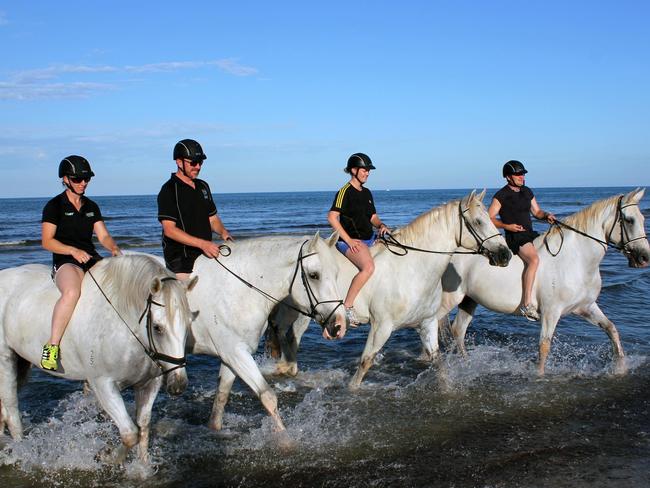
The federal government continues to blame SA’s heavy reliance on renewables, which it says has left the electricity network wanting following the closure of the state’s last coal-fired power station last year.
But state Energy Minister Tom Koutsantonis says it's the rules and mismanagement of the electricity market that’s the problem and not the availability of power. His government has vowed to go it alone and will detail its plans for “dramatic” intervention in the coming weeks.
When temperatures first soared in Adelaide on Wednesday about 90,000 consumers across the city and regional SA were unplugged as the Australian Energy Market Operator ordered load shedding to avoid damage to the network. A similar situation was avoided the following night with extra gas generation in SA brought online.

